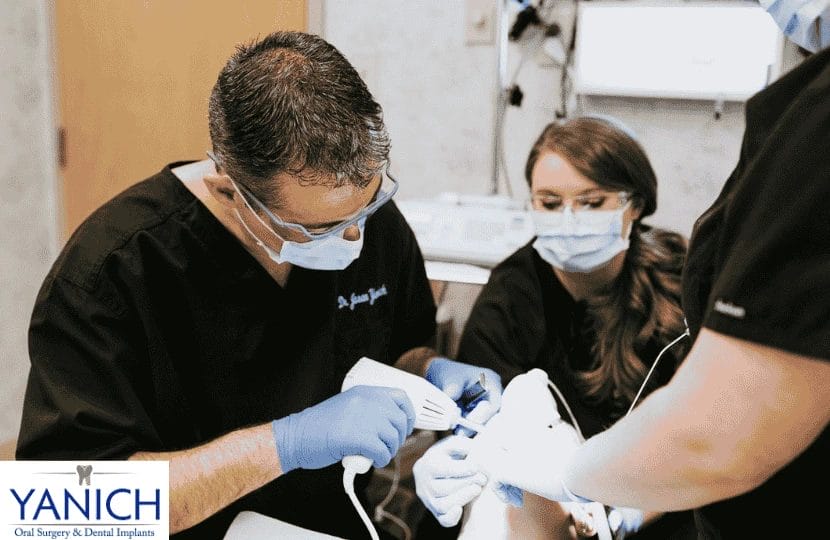Have you ever had a pounding headache and wondered if your wisdom teeth could cause migraines? First of all, great question. Our bodies are incredibly interconnected. What’s going on in your mouth can absolutely affect how the rest of your head (and body) feels. And yes, wisdom teeth might just be the surprise culprit behind some of that migraine misery you’re experiencing.
Dental professionals often hear it all—from jaw pain and tension headaches to the classic, “My tooth hurts, but I swear it feels like it’s in my ear.” So, what’s really going on?
Let’s get into it.

What Are Wisdom Teeth & Why Do They Cause So Much Trouble?
Wisdom teeth, also called third molars, are the last set of molars to make their debut, usually popping up between ages 17 and 25. (Surprise! You thought the days of teething were behind you.)
The problem is, most of our mouths just don’t have enough room anymore to welcome these late bloomers. So instead of sliding nicely into place, they come in crooked, get stuck under the gum line (that’s called an impacted wisdom tooth), or push up against their neighbors like a crowded subway ride at rush hour.
All of this can lead to:
- Jaw pain
- Swollen or tender gums
- Tooth decay around the surrounding teeth
- Gum disease
- And—yep—headaches or even migraine-like symptoms
So…Can Wisdom Teeth Really Cause Migraines?
Short answer: Yes, they can. But not always in the way you’d expect.
Wisdom teeth don’t cause headaches in the same way, say, a bright light or too much screen time might. Instead, they can set off a chain reaction of discomfort that impacts everything from your jaw to your temples.
Let’s break it down:
- Pressure & Crowding: When those third molars start pushing against your other teeth, they create tension throughout your jaw and facial muscles. That constant clenching or imbalance? It can trigger tension headaches and even migraine pain.
- Impaction Drama: An impacted wisdom tooth can become inflamed or infected, which doesn’t just hurt—it actually inflames surrounding nerves. This nerve irritation can shoot pain up to your ears, temples, and even behind your eyes. Ouch.
- TMJ Troubles: Ever heard of the temporomandibular joint? It connects your jaw to your skull and is located just in front of your ear. Wisdom teeth problems can affect your bite alignment and strain this joint, leading to TMJ pain, which often mimics migraines or sinus pressure headaches.
- Grinding and Clenching: If you’re unconsciously gripping your jaw to “protect” an aching wisdom tooth, that tension builds up fast. Hello, tension headache.
Crazy how one tooth can cause such a ruckus, right?
What Should You Watch Out For?
If you’re getting frequent headaches and suspect your wisdom teeth might be connected, here are some clues your body might be giving you:
- Headache pain that starts near your jaw, behind your eyes, or around your temples
- Stiff or sore muscles in your neck or jaw
- Trouble fully opening or closing your mouth
- Swollen gums in the very back of your mouth (near the gum line)
- Pain when chewing—especially with pressure in the back molars
- A dull, aching throb that seems to spread gradually
Sound familiar? Then it might be time to check in with a dentist or oral surgeon in Delaware for a closer look.
OK, So What Can I Do About It?
If you’re currently in that stuck-on-the-couch-with-a-blanket-over-your-eyes kind of migraine mode, I’m sending you a virtual hug.
However, here are a few things that actually might offer relief:
At-Home Relief for Wisdom Teeth Pain
Try Cold Therapy
Apply a cold compress along your jawline or temple for 15-20 minutes at a time. This can reduce inflammation and soothe nerve pain. If possible, make sure it’s one of those soft, flexible gel packs that feel like a hug for your face.
Explore Gentle Home Remedies
Warm saltwater rinses can reduce gum inflammation. Over-the-counter anti-inflammatories can help manage swelling and pain (always follow directions on dosage), and some patients find that essential oils like peppermint or eucalyptus can gently ease tension when dabbed on temples.
But remember—these are just short-term fixes. If wisdom teeth are the real reason behind your pain, you’ll want to tackle the root of the problem (pun very much intended).
Soothe the Migraine-Like Symptoms, Too
Find a Calm, Dark Space
Light sensitivity is a hallmark of migraines. Try resting in a quiet, dim room and closing your eyes for 15–30 minutes. A soft eye mask or cool towel placed over your forehead can work wonders.
Stay Hydrated
Dehydration can trigger headaches of all types—so sipping water (even if you don’t feel thirsty) can be surprisingly helpful. Bonus: Hydration helps with healing, too.
Turn Off Screen Time
Too much time on phones or laptops can strain your eyes and worsen headache pain. If you’re mid-migraine, try unplugging and limiting noise and bright lights as best you can.
Get Some Sleep
A short nap or a good night’s rest might help reset things. Migraines often ease with proper sleep, especially if tension or stress is playing a role.

When Wisdom Teeth Removal Might Be the Best Move
We don’t take oral surgery lightly. But when it comes to impacted wisdom teeth or ones that keep causing pain, infection, or pressure…well, sometimes saying goodbye is the healthiest choice.
Wisdom teeth removal is one of the most common oral surgeries out there. Millions of people have it done every year. And we’re really good at it now—like, really. Today, the procedure is straightforward, the recovery is manageable, and the goal is always to make things as easy and comfortable as possible for you.
Many patients tell me a few days after recovery, they feel better than they have in months. Why? Because all that background pain and pressure is finally gone.
Related Article: How to Tell If Your Wisdom Teeth Need to Be Removed
Common Fears (And the Honest Scoop)
The idea of oral surgery can sound… intimidating. But let’s gently reassure you:
- You’ll be nice and numb (or asleep!) during the procedure
- Recovery is usually quicker than you think (most people are back to light activity in a few days)
- We’ll send you home with detailed instructions and lots of check-ins to make sure you’re healing well
You won’t be doing this alone—we’ll be with you every step of the way.

Prevention to Keep Your Mouth Happy
Even if your wisdom teeth haven’t caused issues yet, regular check-ups are key. With routine dental care—like exams, x-rays, and good home brushing and flossing habits—we can keep an eye on your third molars before they stir up trouble.
And if you’re trying to keep those headaches at bay, don’t forget:
- Stay hydrated (dehydration is a sneaky headache trigger)
- Practice good posture—especially if you work at a desk
- Stretch your jaw gently if you notice tension building up
- And get help early if pain pops up—waiting often just makes it harder
You Deserve to Feel Good
At the end of the day, your mouth is a part of your whole body, not some separate mystery zone. If your wisdom teeth are causing jaw pain, sinus pressure, or even migraine-like symptoms, it’s not “all in your head.” It’s a real issue with real solutions.
You don’t have to suffer through chronic headaches without answers. Whether it’s time for a consultation, wisdom teeth removal, or just a friendly conversation about what’s going on, we’re here to help.
Reach out, give us a call, or book an appointment—we love helping you feel better, one tooth (and one tension headache) at a time.
Stay well and take care of that beautiful smile of yours!

